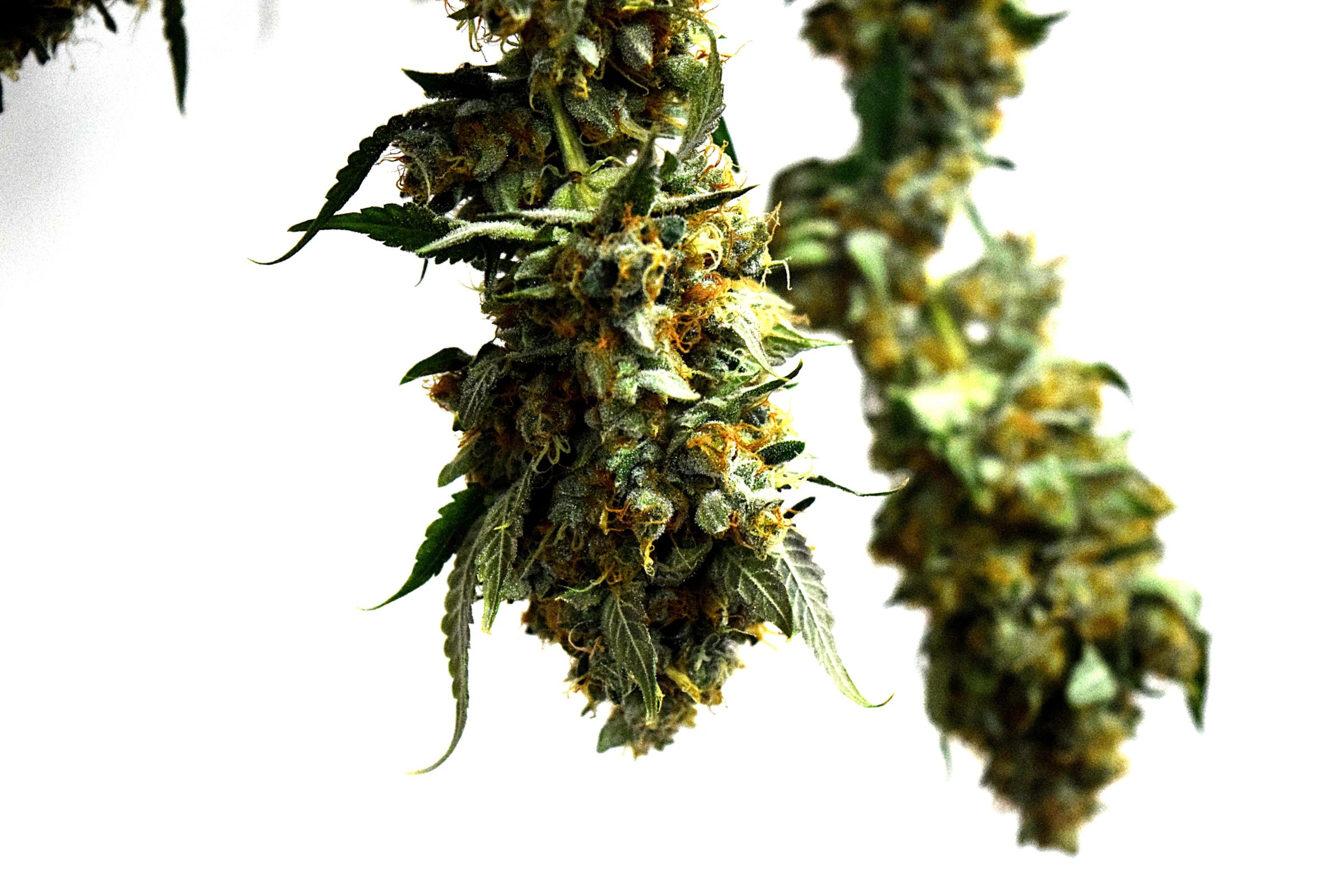
Rick Simpson Oil (RSO), is a cannabis oil extract created by Rick Simpson, a medical marijuana activist. He claims that he used it to treat his own skin cancer and that it cured him of the disease.
RSO is a cannabis extract that is produced from Indica strains with high levels of THC. It is also known by the term "full-spectrum extract" because it retains all plant cannabinoids.
THC, and other ingredients in cannabis, have been shown to prevent or slow tumor growth in both animals and laboratory experiments. Some researchers are also looking into whether these cannabinoids can help to fight the growth of certain types of cancers in humans.
RSO is promising, but more research is needed in order to establish its effectiveness for treating cancer. Patients who are considering using cannabis to treat cancer should consult with their doctors and marijuana doctor.

Oil for Cancer
While there is no direct evidence cannabis can cure any type of cancer, THC-rich oil has been shown to be effective in relieving nausea and vomiting from chemotherapy. It also helps with appetite, pain, sleep, and mood. The use of THC-rich products may increase your chance of developing a psychotic disorder.
RSO can be taken orally or topically. RSO has been reported to help reduce the size of skin cancers and clear up spots over time.
RSO should be used with patience and according to the manufacturer's dosage instructions. This will ensure that you get the most out of your RSO.
You can apply RSO to your skin by rubbing it in a circular motion over the area. To make the process even easier, mix some coconut oil and rub it on the skin. The spots should begin to crack and dry after a few more days.
Mixing RSO with an oil can be used to treat the skin. This method is faster than oral consumption because the oil is absorbed more quickly into the bloodstream.

Locate a medical cannabis dispensary that can supply you with RSO, or other medicinal marijuana products. Most dispensaries will recommend the best RSO strain to meet your needs.
The cost of RSO is high, though, due to the high concentration of cannabinoids and other nutrients that go into this concentrate. Prices range between $35-70 per gram.
Rick Simpson Oil, a powerful form of cannabis extract, contains high levels of THC and other cannabinoids. It is also available in capsules and as an infused oil.
Oil is a concentrated mixture of cannabinoids with terpenes. It is made from the cannabis plant's flowering parts. This is separated from the resin and then purified. RSO is mostly made from Indica varieties, because they have strong sedative effects that can promote sleep and rest. This is especially helpful for people suffering from chronic illness or serious medical conditions.
FAQ
Is there a saturation in the CBD market?
CBD is growing at a rate of more than 25% per year. This growth is expected continue for at most five more years. According to industry projections, it will grow from $2 billion to $5 billion by 2020.
Two companies are currently dominating the CBD market - GW Pharmaceuticals & Canndoc Ltd. Both companies are focused on the development of pharmaceutical-grade CBD products. But they have not been particularly successful. Both of them are having difficulty gaining traction in today's marketplace.
Cannabidiol or CBD is a form of cannabis extract with less than 0.3% HHC. It does not produce any psychoactive effects. It is used to treat epilepsy and other conditions. It is also used frequently as a dietary addition.
There are many types of CBD products. Some CBD products contain whole plant extracts. Others use CBD-rich cannabinoids.
These products all have one thing in common: they contain low amounts of THC.
They are now legal under US federal laws. You still need to comply with local laws when you sell CBD products. You should always verify your state's regulations for the sale of CBD products.
There are also several states that CBD products are prohibited. These include California, Colorado, Florida, Mississippi, Missouri, New York, North Carolina, Ohio, Oklahoma, Oregon, Pennsylvania, Rhode Island, South Dakota, Texas, Utah, Virginia, Washington, and Wisconsin.
You will want to stay clear of CBD products if you are from one of these states.
Is the CBD market growing?
Yes, it is! And this growth is expected to continue into the future as legalization spreads across North America. Canada has legalized recreational marijuana use in the past year, and several states have passed laws regarding medical marijuana.
This trend will likely continue for at least another decade as more states pass legislation allowing access to medicinal marijuana.
It is also economically sensible to legalize marijuana. As well as providing a lucrative alternative market for farmers, there are many other benefits to legalizing pot.
It could reduce crime rates, by decreasing illegal drug availability. It could also help governments generate tax revenue.
As more people turn to legal weed, they may also choose to consume less alcohol. This would result in fewer hangovers, and lower healthcare costs.
For chronic pain patients, marijuana may even improve quality of their lives. Many believe that THC, which is the active ingredient of marijuana, can help relieve muscle spasms and nausea from chemotherapy.
Finally, marijuana might become a valuable tool for treating mental illnesses such as depression and anxiety. In fact, some studies suggest that marijuana can even treat schizophrenia.
The future is bright for CBD, but there are still many challenges ahead.
How big does the global CBD market look?
Euromonitor International reported that the global CBD market was valued in 2015 at $US3.5 billion. This is a more than 10% increase over 2014.
The report predicts that this figure will grow by 12% annually to $US6.4 billion in 2020.
CBD products are expected account for about half of all hemp products worldwide by 2020.
This includes CBD oils.
What CBD products sell the most?
CBD products are becoming increasingly popular. CBD products are popular for their ability to relieve pain and anxiety. The market is big and growing fast.
What are people buying CBD for? This is how it affects brand owners.
Statista states that CBD products are bought for their relaxing effects. They are also purchased for their antiinflammatory properties.
If your product contains both CBD and THC, it can be used for medicinal and recreational purposes.
But what about brands which are focused on just one purpose? A company selling CBD for stress relief is an example of a brand that will not be challenged.
A brand that focuses on CBD for medicinal purposes will also have a large customer base.
However, a brand that wants to target recreational customers must develop a unique selling message (USP). A USP can be described as a unique selling proposition (USP) that is unique to a brand.
For instance, some brands offer free shipping and others offer discounts on bulk orders.
Is CBD investing a smart investment?
The answer depends on the question you are asking. They can be a great investment if it is money you are after. If however, you only want to invest in something that may help others, then no.
Statistics
- CBD seems unlikely to directly influence sleep in healthy humans [115] (and maybe “sleep-promoting” in those with certain comorbid conditions) (ncbi.nlm.nih.gov)
- The inhibition of FAAH is predicted to lead to an increase in brain and plasma concentrations of AEA, which acts as a partial agonist at CB1R and CB2R, thereby increasing endocannabinoid tone [92, 110]. (ncbi.nlm.nih.gov)
- While the primary injury may not be treatable, interventions that attenuate secondary sequelae are likely to be of benefit [203].Only one study (ncbi.nlm.nih.gov)
- As a substance that was federally illegal before the passage of the 2018 Farm Bill, hemp-derived cannabinoids with no more than 0.3% THC still face a regulatory grey area. (forbes.com)
- A recent systematic review of human trials also reported that individuals with epilepsy receiving CBD (5–20 mg·kg−1·day−1) were more likely to experience decreased appetite than those receiving placebo (i.e., ~20 vs. 5% of patients) (ncbi.nlm.nih.gov)
External Links
How To
What are the most common problems in the CBD industry?
The current market for CBD-based products is expanding at a phenomenal rate. Businesses looking to get into this market face many obstacles. These include low consumer awareness, high entry costs, limited capital access, regulatory uncertainty, and lack of consumer awareness.
Many people don't know much about CBD or how it works. They are unable to make an informed decision about buying CBD products.
CBD companies are heavily dependent on word-of–mouth marketing. This is expensive as they must pay advertising costs and to hire staff to market their brand.
Another problem for new entrants to CBD is the high price of production. High prices are a major problem for CBD products because of the high cost of raw materials. For example, hemp needs to be grown in specific climates and soil types before it can be processed into CBD oil.
To grow enough hemp for CBD oil production, it costs approximately $1,000 per acre. Because of this, many small farmers are unable to afford to grow enough hemp for CBD oil.
A lack of capital access is another problem that CBD market newcomers face. Banks discourage many people from starting a business because of the stigma attached to this industry.
Final, there are regulatory uncertainties surrounding the sale CBD products. There are currently no guidelines on how CBD products should marketed.
Despite some states having passed laws restricting the sale CBD products, this is not yet a national policy.
Only two states, Nevada and Maine, have yet to legalize recreational marijuana.
Some states, such as Michigan and Massachusetts, are looking at similar measures.
These changes could cause increased competition among CBD manufacturers.
These factors lead to many entrepreneurs choosing to work from their home instead of starting a physical company.